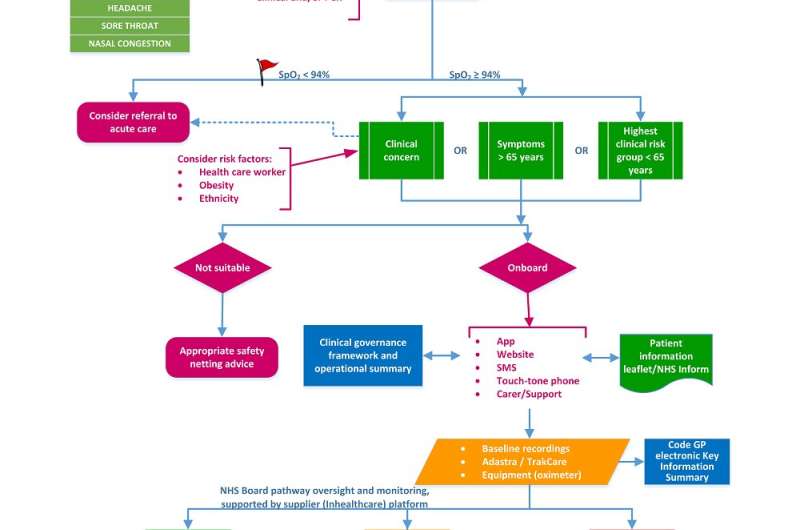

Patients at risk of developing severe COVID-19 symptoms have been successfully treated at an early stage thanks to the use of a remote monitoring service.
The small study, which allowed patients to record their symptoms by telephone or through an app, helped clinicians identify participants with low oxygen levels.
Experts say this ensured they were admitted to hospital before their condition deteriorated.
The service was trialed in two Scottish NHS boards and has since been rolled out across seven boards in Scotland, with others set to follow.
Serious hypoxia
Most people with COVID-19 are able to self-manage the symptoms at home. However, some people may develop serious hypoxia—when body tissue is deprived of adequate oxygen supply—and require hospital admission.
The elderly, people with underlying medical conditions, some ethnic minorities, and people with high body mass index are known to be at increased risk of deterioration.
Experts say that early treatment is effective. The use of oxygen, steroids, and novel anti-inflammatories, along with general supportive therapy, have been shown to reduce death rate or shorten admissions.
Record symptoms
Researchers at the University of Edinburgh, NHS Lanarkshire and NHS Highland assessed the use of a telemonitoring service that allowed those at high risk of deterioration to record their symptoms.
If the updates suggested their condition was worsening, alerts were sent to the patient recommending they seek advice or urgent care. Patients also had the option of managing their condition using detailed written instructions provided by a clinician.
The research team tracked the outcomes of the first 116 patients who used the service. Of the 71 patients who submitted data, 35 received 151 alerts during their two-week observation.
Twenty-one of these patients were admitted to hospital, with an average stay of 3.7 days. This is much shorter than the average stay for patients with COVID-19, but researchers say this may reflect the severity of the cases rather than any direct effect of the monitoring.
In addition to the seven boards using the service, one is using it for maternity services. The service is available to all NHS boards across Scotland to adopt under a nationally funded contract.
Source: Read Full Article